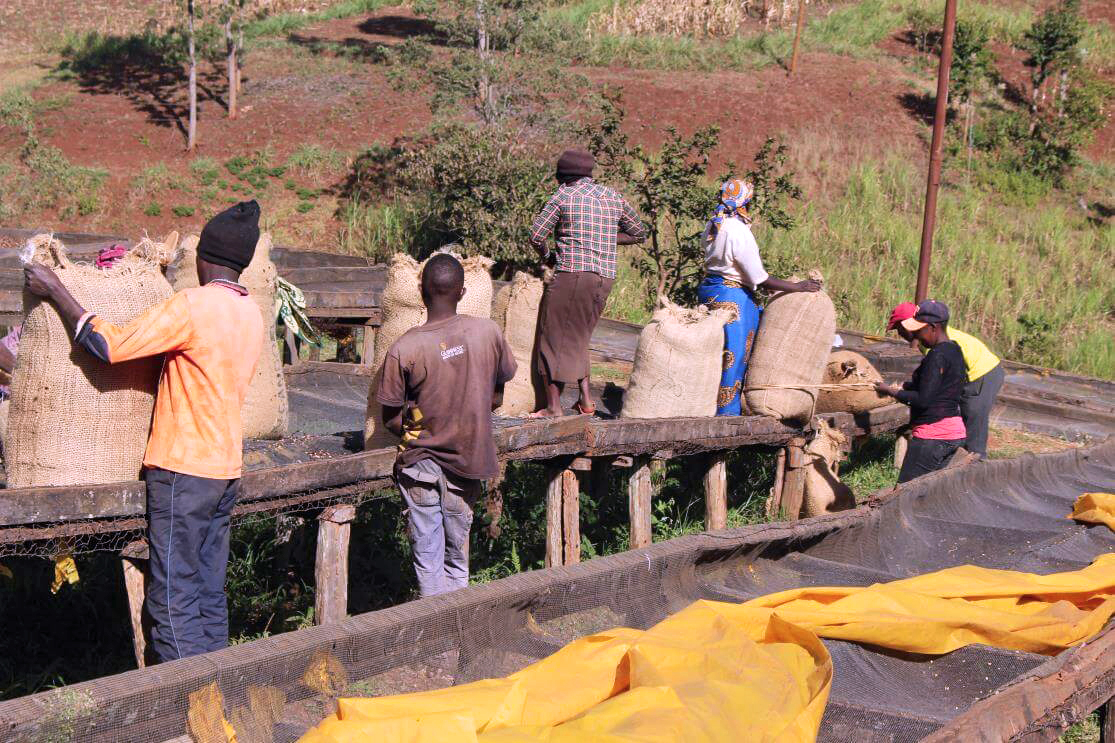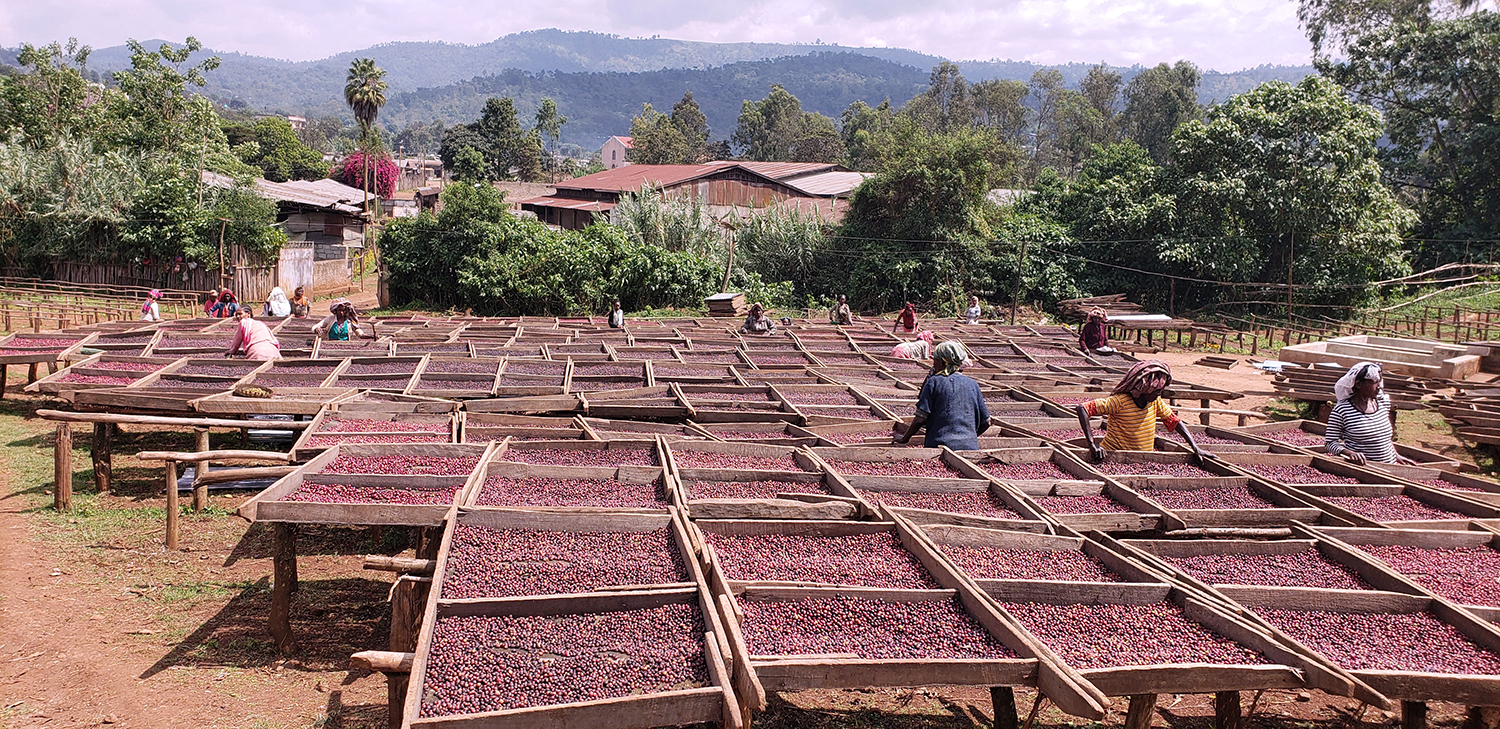- New









Ethiopia
Cup Notes: Blueberry, Lavender, Jasmine, Black Tea, Cherry
Back for the fourth year in a row, this standout natural reveals the soul of Yirgacheffe through its distinctive terroir — delicate florals, jammy berries, and a bright, lively acidity.
Suggested for espresso and filter
when we roast
We freshly roast to order all coffees on Monday, Wednesday and Friday (excluding national holidays), and ship the same day! Cut-off time is 11:59pm (UTC+1) of the day before the roast day. *We only ship whole beans*
This Grade 1 natural coffee comes from the Banko Gotiti wet mill, located in the Kochere district of Ethiopia’s renowned Yirgacheffe region. The mill is managed by Alemu Bukato and processes cherries from around 650 local farmers.
We’ve been working with the Banko Gotiti Cooperative for four years in a row now, and each season we’re impressed by the outstanding and consistent quality of their coffees.
Sourced from family-owned farms in the village of Banko Gotiti, in the southern Gedeb district (Gedeo Zone), this coffee reflects the deep-rooted expertise and care of the cooperative's members. Established in 2012 as an independent offshoot of the larger Worka Cooperative, Banko Gotiti now counts around 300 members and is widely recognized for producing some of the finest and most meticulously selected coffee cherries in Ethiopia.

Ethiopian heirlooms, why the generic name? It's estimated that there are somewhere in-between six and ten thousand coffee varietals in Ethiopia. And due to this colossal figure, there hasn’t been the genetic testing to allow buyers to distinguish the varietal. With the cross pollination that naturally happens in the wild, the name "Ethiopian Heirloom" exists as a catch-all phrase to describe this happenstance. However, that really makes Ethiopian quite a mystery and an interesting mystery as each village or town could potentially have a different varietal which could carry very unique properties.
The local indigenous ‘heir-loom’ varietals - which grow wild in Ethiopia - are responsible for the unique flavour notes which make for an unusual but refined cup. When processed naturally through sun-drying these present with juicy and jammy stone-fruit flavours, floral and chocolate notes with a creamy body.

Shade-grown, ripe cherries are delivered to the mill and carefully sorted to select only the very best fruit. The cherries are then sun-dried on raised African beds for approximately 12 to 15 days. During the day, they are regularly raked and turned to ensure even drying. Between 12 p.m. and 3 p.m., they are covered to protect them from intense sunlight, and again at night to shield them from rainfall and moisture.
Once the coffee reaches the ideal moisture level, it is milled, graded, sorted, and meticulously handpicked before being packed in GrainPro bags for export through the port of Djibouti.
